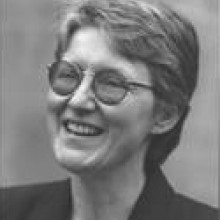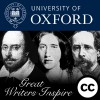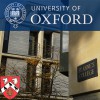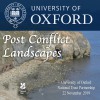
Relevant Links
Over the next few years Professor Kathryn Sutherland will be working on a book-length comparative study of five Romantic-period novelists through their surviving manuscript evidence: Jane Austen, William Godwin, Mary Shelley, Walter Scott, and Frances Burney. Her working title is: 'Manuscript and the Practice of Meaning: A study of Romantic-period fiction writings through draft forms'.
Professor Sutherland specialises in the Romantic period, where she is interested in the distinctly modern phenomenon of working manuscripts: of draft materials in the hand of the author or his/her delegated copyist, and of proof sheets showing evidence of revision. Jane Austen and her near-contemporaries, Frances Burney, William Godwin, Walter Scott, and Mary Shelley are the first British novelists for whom there are significant manuscript deposits. Such deposits represent every stage of the pre-print process and a wide variety of material forms: working drafts, fair copies, handwritten publications for private circulation, printer’s copy, and proof sheets. By contrast with their poet contemporaries (notably, Wordsworth, Coleridge, and Shelley), the draft materials of novelists have received little attention: possibly because they are more easily categorized as transitional documents, stations towards print, or assumed to be less intimately revelatory than poetry manuscripts. Yet fiction writers, like poets, discover meaning through processes whose trace is found on the manuscript page. Professor Sutherland is interested in proposing a new research method for authorial draft materials, in which the blots, interlinear insertions, and false starts of the writing hand, and the writing surfaces themselves, are integral to meaning. The study will attach particular significance to the relationship between manuscript as linguistic structure (as text) and as physical support (as object) and will argue for an intimate correlation between writing surface and the evolution of composition. This takes manuscript studies beyond the activity of transcription traditionally undertaken by editors and requires us to think of manuscripts as specific objects to which meanings adhere. In this, she will build on her recent work for a digital edition of Austen’s fiction manuscripts (see www.janeausten.ac.uk).
| # | Episode Title | Description | People | Date | |
|---|---|---|---|---|---|
| 6 | Post-Conflict Landscapes 22 Nov 2019 Seascapes panel | Professor Kathryn Sutherland (Oxford), Writing after Waterloo: Jane Austen’s Late Fiction and Jonathan Wallis and Kiki Claxton (National Trust), 'Easington Colliery: Conflict in the Landscape'. | Kathryn Sutherland, Jonathan Wallis, Kiki Claxton | 11 Dec 2019 | |
| 5 | Is the printed word dead? | Kathryn Sutherland, Drummond Moir and Sara Lloyd give talk for the St Anne's college Alumni Weekend 2014 | Kathryn Sutherland, Drummond Moir, Sara Lloyd | 15 Oct 2014 | |
| 4 | Creative Commons | Jane Austen's Manuscripts Explored | Professor Kathyrn Sutherland from the University of Oxford talks around the manuscripts of Jane Austen, what we can learn from them about her family life but also her writing style and techniques. | Kathryn Sutherland | 08 Jun 2012 |
| 3 | Creative Commons | Jane Austen's Manuscripts Explored | Professor Kathyrn Sutherland from the University of Oxford talks around the manuscripts of Jane Austen, what we can learn from them about her family life but also her writing style and techniques. | Kathryn Sutherland | 08 Jun 2012 |
| 2 | Creative Commons | The Watsons: Jane Austen Practising | Professor Kathryn Sutherland from the University of Oxford talks about some of Jane Austen's manuscripts from the novel "The Watsons" and what we can learn about her from these. | Kathryn Sutherland | 08 Jun 2012 |
| 1 | Creative Commons | The Watsons: Jane Austen Practising | Professor Kathryn Sutherland from the University of Oxford talks about some of Jane Austen's manuscripts from the novel 'The Watsons' and what we can learn about her from these. | Kathryn Sutherland | 08 Jun 2012 |




